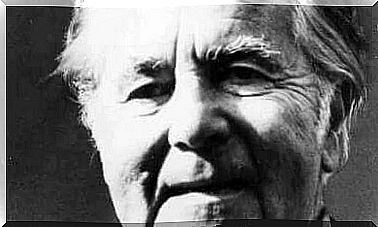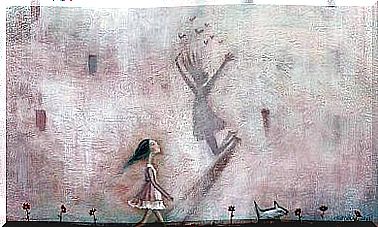The Power Of Proactive Thinking

To take the reins of destiny, it is necessary to stop reacting to everything that happens to us and dare to act. One way to achieve this is to apply proactive thinking. It allows us to face reality in a creative, agile and in tune with life changes. In essence, it’s about finding the motivation to move forward.
Often it is said that what defines a leader is precisely your vision and your remarkable ability to turn a vision into reality. Of course, without a doubt, none of us have a ‘crystal ball’ to anticipate the detail, which may or may not happen within a certain period of time.
However, when we face reality (whether we like it or not), we always have two options: apply reactive thinking or a proactive approach. The first defines a type of behavior in which we limit ourselves exclusively to reacting to everything that happens to us. It is like someone who, while walking along a path, hits the branch of a tree and cries out in pain.
On the other hand, we have another interesting possibility. We shouldn’t just limit ourselves to not letting certain things happen and dodging the branch of the tree. Another way must be found to cross this path fraught with danger. We can, if we so choose, apply proactive thinking to be prepared, have a plan in place, and avoid, as far as possible, being “struck” by circumstances.
Applying this kind of approach has great benefits. Edward de Bono, for example, a reference in the field of creativity, defines proactive thinking as “deliberate reasoning”, which we could all train to gain quality of life.

Proactive thinking, or how to aspire to a more positive (and healthier) future
Psychologists Stephanie Jean Sohl and Anne Moyer of Stony Brook University conducted a very revealing study a few years ago on stress and human well-being. According to this work, people who used proactive coping had a much lower chance of developing high levels of stress.
The correct way to apply proactive thinking, according to this research, is based on two very simple strategies:
- The first is defined as “proactive questions”. It would simply clarify some aspects such as: What do I need to feel good in the short and long term? What changes should I implement to achieve my personal goals?
- The second strategy is based on collecting “preventive ideas”. It’s about devising strategies to know how and how to react to certain things if they happen. For example, if I suspect that I might be fired from work, I should think of other ways out, have a ‘plan b’ in place.
But let’s see what other factors define proactive thinking.
Proactive thinking: a positive, creative and flexible mindset
Edward de Bono used to explain in his works that sometimes the smartest people are the least proactive. What at first may seem surprising to us has its explanation.
- To effectively, original and positively anticipate our near future, we must generate lots of ideas and be creative.
- There are brilliant people who are experts when it comes to understanding very complex aspects of our reality. However, they are unable to create alternatives or new proposals.
- Proactive thinking needs to go beyond the present moment, it requires a visionary and very flexible attitude.
- It is not, therefore, a question of being “great thinkers”, but rather “flexible and very original thinkers”.
In turn, and not least, to be proactive it is necessary to include in this vision a clearly positive attitude. Be optimistic about the future and about yourself. Trusting your abilities to wish for something better is critical to this kind of approach.

frustration tolerance
Frustration is an emotional bomb that explodes within us when things don’t go our way. Few psychological textures are so uncomfortable and difficult to deal with. However, it is imperative to learn to tolerate the roadblocks we all encounter along our particular climbs toward a goal.
The proactive person, this profile that applies a kind of deliberate, optimistic and decisive thinking, has learned to live with the feeling of frustration. Of course, on any journey there are difficulties and, for this reason, it is necessary to foresee and find ways to overcome these obstacles on the way.
Thus, something we must understand in proactive thinking is that, as far as possible, we need to learn to deal with this nuance of surprise that the future may bring us through innovative plans.
Reality is full of patterns
Life has its patterns. We may not appreciate them at first, but they are there, latent, orchestrated by this daily flux where there are things that can be anticipated, where there are stimuli that trigger processes and actions that bring consequences.
The proactive person, therefore, is someone who has learned to observe, analyze and awaken their intuitive view of things. Little by little, she realizes that there are certain nuances that don’t just happen ‘just because’. Understanding the patterns is a way of being prepared, of thinking about response strategies to live better.

In conclusion, if we’ve been limiting ourselves for some time to simply reacting to the facts rather than being proactive, we need to rest. When we go through a large number of events, it’s ideal to take a moment to process what happened, regain your spirits, energy and strength.
Only when we calm the mind will we be able to see things differently. Proactive thinking comes when we regain motivation, clarity, and hope. This will be the perfect point to start acting and stop reacting.









